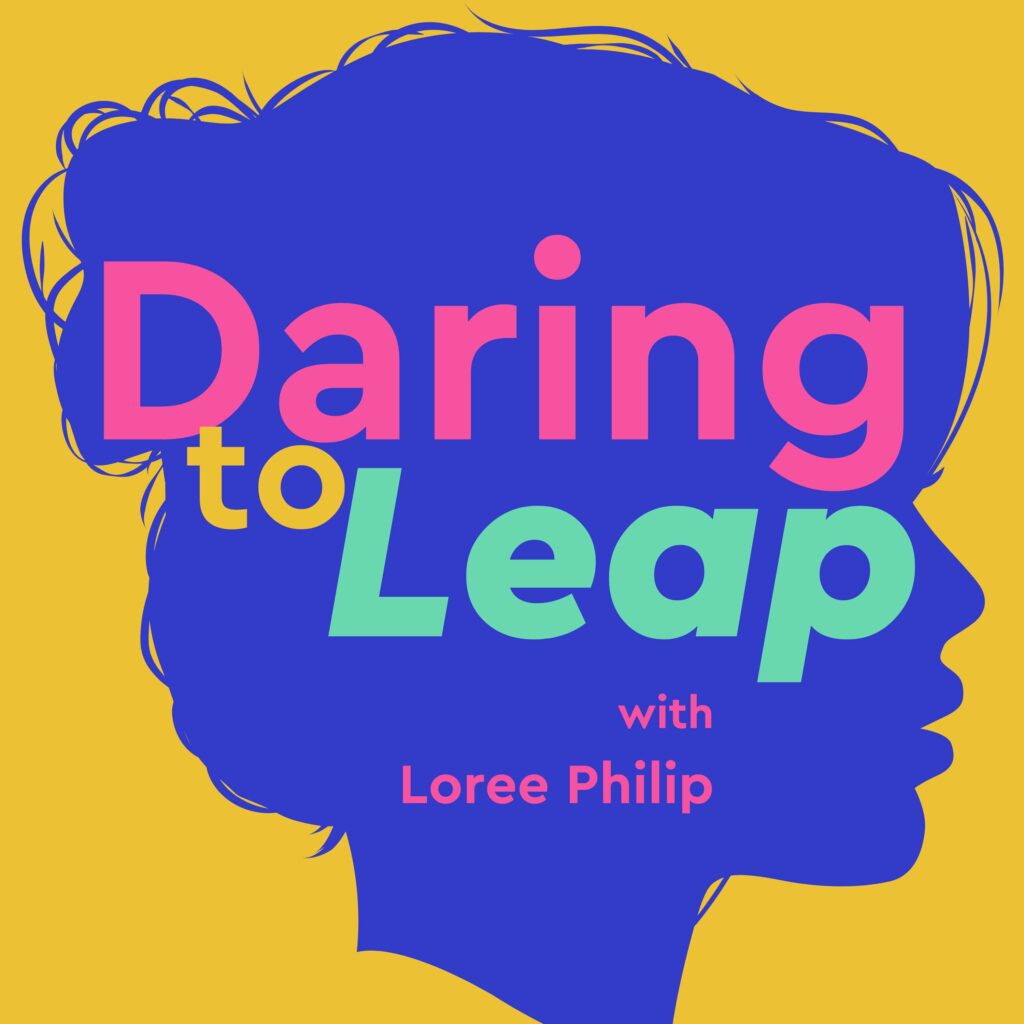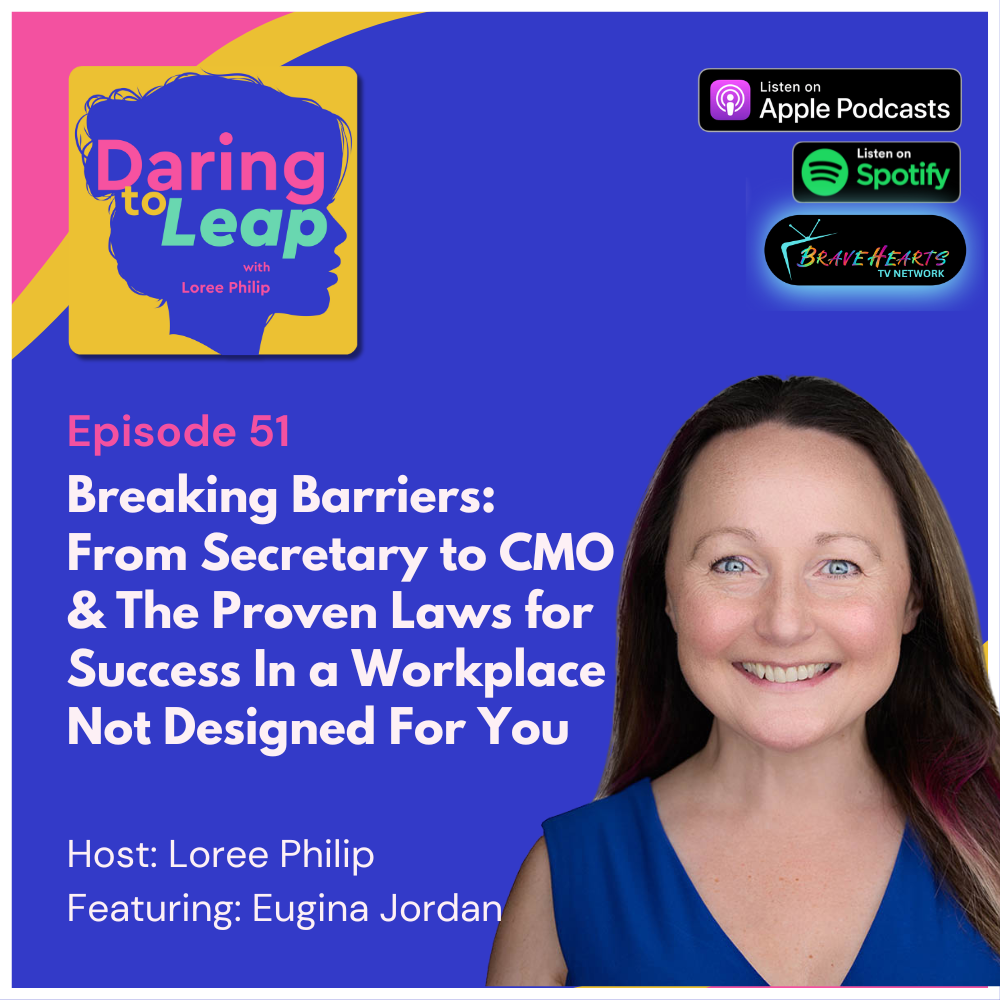How can you break barriers and redefine success on your terms, even when the odds are stacked against you?
In this episode of Daring to Leap, we are joined by Eugina Jordan, CMO and Author of UNLIMITED: The 17 proven laws for success in a workplace not designed for you.
If you’ve ever felt overshadowed in your career, or if breaking through barriers feels overwhelming, this episode is a beacon of hope. With Eugina Jordan’s journey from secretary to CMO in the male-dominated telecom industry as a backdrop, you’ll find real-world guidance on navigating the corporate ladder, especially in environments not traditionally designed for you.
By listening to this episode you’ll:
- Be inspired by Eugina’s story of climbing the corporate ladder from Secretary to CMO
- Learn the power of sponsorship over mentorship and gain valuable strategies for cultivating these crucial career-boosting relationships.
- Combat imposter syndrome with confidence-boosting tactics, including creating a “brag list,” to remind you of your accomplishments and prepare you to own your success story.
- Unearth the significance of personal branding and the strength of community in your career journey
- Feel empowered to network in a way that’s true to your authentic self.
- Learn to harness the power of self-belief to elevate not only yourself but also those around you.
Hit play to discover how to unlock your career potential with the wisdom and strategies Eugina Jordan shares in this transformative episode of Daring to Leap.
Connect with Eugina:
https://www.linkedin.com/in/euginajordan/
More from Host, Loree Philip:
GET YOUR FREEBIE! Career Energy Boost GUIDE: 5 Strategies To Add Life And Vibrancy To Your Career – Grab your copy HERE.
Are you ready to shed self-doubt and fears that are keeping you from taking your leap?
Let’s chat! Book a FREE Confidence to Leap call with Loree Philip: HERE
Connect with Loree:
Instagram – @loreephilip
LinkedIn – @loree-philip

